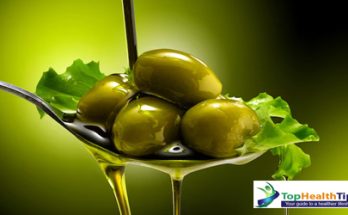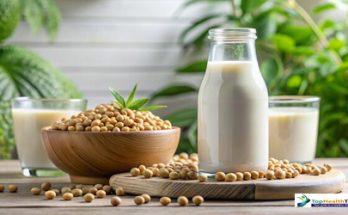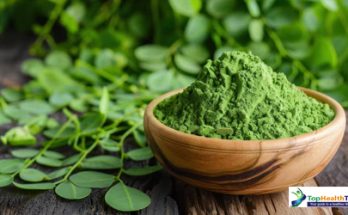Ripe papaya is more than just a tropical delight—it’s a nutrient-packed powerhouse that offers incredible benefits for digestion and immune health. With its sweet flavor and soft, buttery texture, ripe papaya is a favorite among health-conscious individuals and food enthusiasts alike. But what makes this fruit so special? Let’s dive into the science behind its nutritional profile and how it can support your digestion and strengthen your immune system.
Nutritional Highlights of Ripe Papaya
Papaya is rich in essential vitamins, minerals, and antioxidants. Some of its key nutrients include:
- Vitamin C: One serving of ripe papaya provides more than 100% of the daily recommended intake of vitamin C, a crucial antioxidant for immune health.
- Vitamin A: Papaya is a great source of beta-carotene, which the body converts into vitamin A, essential for eye health and immune function.
- Fiber: With a significant amount of dietary fiber, papaya supports gut health and promotes healthy digestion.
- Enzymes: Papain, a digestive enzyme found in ripe papaya, helps break down proteins, easing digestion.
Here’s a chart showing the nutritional composition of ripe papaya per 100 grams, along with its Daily Value (DV) percentages based on a typical 2,000-calorie diet:
| Nutrient | Amount per 100g | % Daily Value (DV) |
|---|---|---|
| Calories | 43 kcal | 2% |
| Total Fat | 0.33 g | 0% |
| Saturated Fat | 0.1 g | 0% |
| Cholesterol | 0 mg | 0% |
| Sodium | 1 mg | 0% |
| Potassium | 182 mg | 4% |
| Total Carbohydrates | 10.82 g | 4% |
| Dietary Fiber | 1.7 g | 6% |
| Sugars | 7.82 g | – |
| Protein | 0.47 g | 1% |
| Vitamin A | 47 µg | 5% |
| Vitamin C | 60.9 mg | 67% |
| Calcium | 18 mg | 2% |
| Iron | 0.1 mg | 1% |
| Magnesium | 21 mg | 5% |
| Folate | 37 µg | 9% |
| Vitamin E | 0.3 mg | 2% |
Notes:
- The percentages are approximate and may vary based on individual dietary needs and nutritional guidelines.
- Always refer to specific dietary guidelines for more personalized information.
This chart illustrates how ripe papaya contributes to daily nutrient intake, particularly highlighting its high vitamin C content.
The Digestive Benefits of Ripe Papaya
Ripe papaya is a well-known natural remedy for digestive health. Here are 10 ways this tropical fruit promotes a healthy digestive system:
- High in Dietary Fiber
Papaya is rich in fiber, which adds bulk to stool, promoting regular bowel movements and preventing constipation. - Contains Natural Digestive Enzymes
The enzyme papain, found in ripe papaya, helps break down proteins into smaller, more digestible molecules, which is especially beneficial for those with slow digestion or digestive issues. - Relieves Bloating
Papain also helps reduce bloating and gas by aiding protein digestion, preventing the buildup of undigested food in the intestines. - Promotes Healthy Gut Bacteria
The fiber in papaya acts as a prebiotic, feeding beneficial gut bacteria and supporting a balanced microbiome, which is essential for optimal digestion. - Helps Prevent Acid Reflux
By improving digestion and reducing bloating, papaya can lower stomach acid levels and relieve pressure on the esophagus, helping to prevent acid reflux. - May Aid in Healing Stomach Ulcers
The antioxidants and enzymes in papaya may help protect the stomach lining from damage and support the healing of gastric ulcers. - Eases IBS Symptoms
Papaya’s fiber and enzymes can alleviate symptoms of Irritable Bowel Syndrome (IBS) by promoting smoother digestion and reducing abdominal discomfort. - Supports Protein Digestion
The proteolytic enzymes in papaya, particularly papain, assist in breaking down tough proteins into smaller peptides and amino acids, making absorption easier. - Enhances Nutrient Absorption
By aiding the digestion process, papaya ensures nutrients are properly broken down and absorbed more efficiently in the small intestine. - Promotes Hydration and Electrolyte Balance
Papaya’s high water content keeps the digestive tract hydrated, while its potassium helps balance electrolytes, reducing the risk of dehydration and digestive disturbances.
Quick Tip:
Add a bowl of ripe papaya to your breakfast to kickstart your digestion for the day.
How Ripe Papaya Strengthens Immunity
Ripe papaya is a nutritional powerhouse that boosts your immune system in various ways. Here are 10 ways it helps strengthen immunity:
- Rich in Vitamin C
Ripe papaya is packed with vitamin C, a powerful antioxidant that increases white blood cell production, helping the body fight infections more effectively. - Boosts Antioxidant Defense
Papaya is loaded with antioxidants like beta-carotene and lycopene, which neutralize free radicals that can damage immune cells. - Controls Inflammation
The anti-inflammatory properties of papaya help reduce chronic inflammation, which is often linked to weakened immunity and various diseases. - Promotes Skin Barrier Health
Vitamin A in ripe papaya supports healthy skin and mucous membranes, which serve as the body’s first line of defense against pathogens. - Supports Healthy Gut Flora
The fiber in papaya acts as a prebiotic, feeding beneficial gut bacteria that are essential for a strong immune system. - Improves Nutrient Absorption
Papaya contains papain, an enzyme that aids in the digestion of proteins, ensuring better absorption of nutrients critical for immune function. - Strengthens Respiratory Health
Regular consumption of papaya helps maintain lung health by reducing oxidative stress, which can compromise the respiratory system. - Accelerates Wound Healing
Papaya’s rich vitamin C content promotes collagen production, which is vital for tissue repair and faster wound healing, boosting overall immunity. - Supports Detoxification
The antioxidants and fiber in papaya help eliminate toxins from the body, easing the burden on the immune system. - Fights Viral Infections
The antiviral properties of vitamin C and bioactive compounds in papaya enhance the body’s defense mechanisms, especially against common colds and flu.
These benefits make ripe papaya an excellent addition to your diet for boosting and maintaining a strong immune system.
Additional Health Benefits of Ripe Papaya
Ripe papaya is more than just a tasty tropical fruit. It offers a wide range of health benefits that support various aspects of your wellbeing, including digestion and immunity. Here are 10 ways ripe papaya promotes overall health:
- Promotes Heart Health
Packed with fiber, antioxidants, and potassium, papaya helps lower cholesterol and supports healthy blood pressure, reducing the risk of heart disease. - Improves Skin Health
The high levels of vitamin C and vitamin A in papaya boost collagen production, improving skin elasticity, reducing wrinkles, and giving your skin a natural glow. - Fights Inflammation
Papaya contains powerful antioxidants like beta-carotene, vitamin C, and flavonoids, which help reduce inflammation throughout the body, benefiting those with chronic inflammatory conditions. - Supports Eye Health
The beta-carotene in papaya converts to vitamin A, essential for maintaining good vision and preventing age-related macular degeneration. - Aids in Weight Management
With its low-calorie and high-fiber content, papaya helps you feel full longer, making it a great option for healthy weight management and snacking. - Boosts Wound Healing
Rich in vitamin C, papaya supports tissue repair and speeds up wound healing. It also helps prevent infections in minor cuts and injuries. - Enhances Kidney Health
Papaya’s potassium content helps regulate sodium levels, reducing stress on the kidneys and supporting overall kidney health. - Anti-Cancer Properties
Antioxidants like lycopene and beta-carotene found in papaya may reduce the risk of certain cancers by neutralizing free radicals and protecting cells from oxidative damage. - Strengthens Hair Health
Vitamins A and folic acid in papaya nourish the scalp and strengthen hair follicles, leading to healthier, shinier hair and helping prevent hair loss. - Reduces Menstrual Pain
Papaya enzymes regulate menstrual flow and relax uterine muscles, offering natural relief from menstrual cramps and discomfort.
How to Incorporate Ripe Papaya into Your Diet
Papaya is incredibly versatile and can be eaten on its own or incorporated into a variety of dishes. Here are some ideas to enjoy ripe papaya:
- Papaya Smoothie: Blend ripe papaya with yogurt, a banana, and a handful of spinach for a delicious, nutrient-packed smoothie.
- Papaya Salad: Combine diced papaya with cucumber, mint, and lime juice for a refreshing, tangy salad.
- Papaya Salsa: Add diced papaya to salsa ingredients like tomatoes, onions, and cilantro for a tropical twist.
- Papaya Dessert: Pair papaya with honey and a sprinkle of cinnamon for a naturally sweet and healthy dessert option.
Buying and Storing Ripe Papaya
When choosing ripe papayas, look for fruits that are mostly yellow with a slight give when pressed gently. Avoid papayas with large blemishes or overly soft spots. Store ripe papayas in the refrigerator for up to a week to maintain freshness.
Quick Tip:
If your papaya is not fully ripe, leave it on the counter for a few days to ripen naturally.
Interactive Quiz: Test Your Papaya Knowledge!
Test your knowledge on the health benefits of papaya with this short quiz:
- What vitamin in papaya boosts immunity?
- What digestive enzyme is found in ripe papaya?
- True or False: Papaya helps prevent heart disease by regulating cholesterol.
Conclusion
Ripe papaya is not only a delicious tropical fruit but also a natural remedy for better digestion and a stronger immune system. Packed with essential vitamins, fiber, and enzymes, it’s a simple, tasty way to support your overall health. Whether you’re looking to improve your gut health, boost your immunity, or simply enjoy a nutritious snack, adding ripe papaya to your diet is a choice you won’t regret.
Related posts for Nutrition & Food>>>
References
- Rolfes, S.R., Pinna, K., & Whitney, E. (2018). Understanding Nutrition. Cengage Learning.
- Heinrich, M., & Prieto-Garcia, J. (2019). Fundamentals of Pharmacognosy and Phytotherapy. Elsevier Health Sciences.
- Ali, N., Akhtar, N., & Ahmad, S. (2016). “Papaya: Health Benefits and Nutritional Composition,” Asian Pacific Journal of Tropical Biomedicine.
- Cerda, C., et al. (2021). “Vitamin C: Importance for Immune Function,” Journal of Nutrition and Metabolism.
- Bose, P., et al. (2019). “Papain and Its Applications in Digestive Health,” Journal of Food Science.




